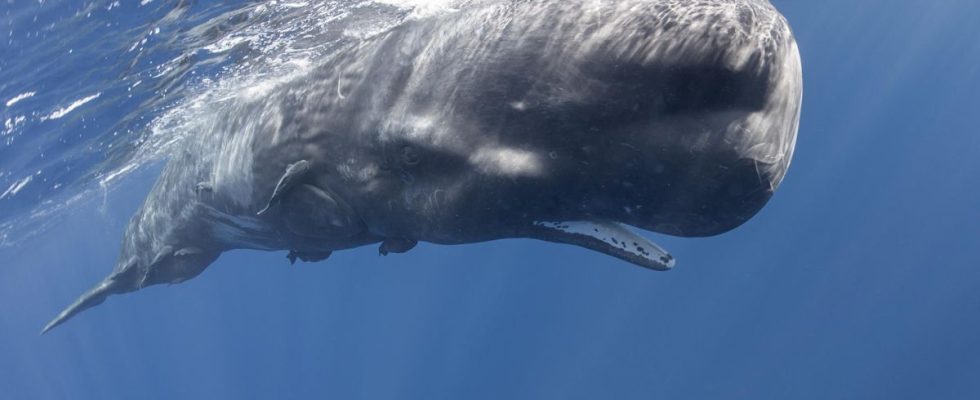This is a world first for the protection of sperm whales. Dominica, a small island country in the Caribbean, announced on Monday the creation of a reserve for these cetaceans, banning commercial fishing and the movement of large vessels.
This protected area will extend over almost 800 km2 off the west coast of Dominica, approximately the size of the island itself. The country thus hopes to increase its tourism revenue, but also to trap more carbon in the seabed thanks to the biological properties of these cetaceans.
Sperm whales ‘are valuable citizens of Dominica’
“The approximately 200 sperm whales that live in our sea are valuable citizens of Dominica,” Prime Minister Roosevelt Skerrit said Monday. Sperm whales are the largest toothed predators on the planet, growing up to 16 meters long. Found all over the world, from New Zealand to Iceland, they particularly appreciate the translucent waters of Dominica, ideal for their food and for raising their young.
Biologist Shane Gero, who has been studying Dominica’s sperm whales since 2005, has shown through his research that their population is declining due to ship strikes, accidental fishing and plastic pollution. “We are losing animals and families that the researchers and operators who observe sperm whales here know very well,” he said.
A corridor will therefore be dug to allow ships to dock in Roseau, the capital and largest city on the island, said Francine Baron, head of an agency for climate resilience in Dominica. Boats longer than 18 meters will likely be banned, while small-scale artisanal fishing will remain permitted.
Benefits for the climate
Kristen Rechberger, founder of Dynamic Planet, a company that advises the Dominican government, explained that the idea would be to implement a similar concept with the mountain gorilla tourism program in Rwanda, where foreign visitors pay 1,500 dollars to hike for a day and spend an hour with the primates.
Sperm whales also have climatic advantages: their excrement is rich in nutrients and encourages the proliferation of plankton which captures carbon dioxide from seawater. Assuming that 250 whales live in Dominica’s waters, they trap every up to 4,200 tonnes of carbon per year, the equivalent of 5,000 cars taken off the road, estimates Enric Sala, founder of the non-profit organization Pristine Seas, which also advises Dominica.

